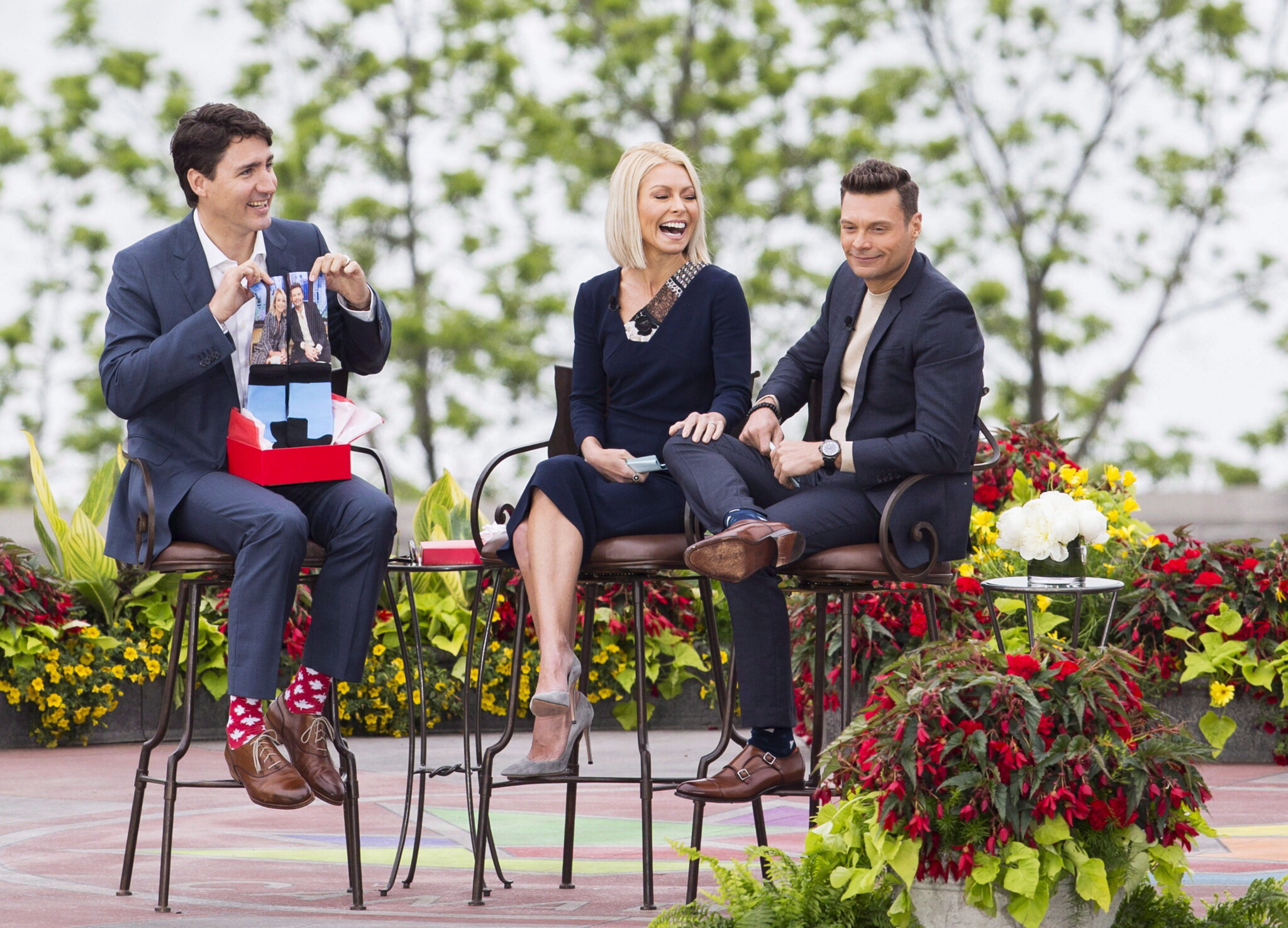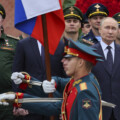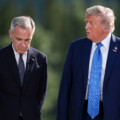As Justin Trudeau finally announces the timetable for the assisted death of his political career, Canada’s international standing has seldom been any lower. Almost a decade after he proclaimed, to domestic adulation, that “Canada is back” on the international stage, Canada has become, in the eyes of much of the world, a cautionary tale for the excesses of progressive governance, a recreational punching bag, or simply a target of generalized contempt. For this, Trudeau and his government are solely to blame.
It did not have to end this way. When he became prime minister in 2015, Trudeau instantly became a global icon for the sort of new progressive politics that were then sweeping the West. Unaccustomed to international focus on our domestic politics, Canadians were flattered by the attention and credited the prime minister accordingly. When he visited the Department of Foreign Affairs’ headquarters, he was mobbed by adoring Foreign Service officers.
The honeymoon lasted for about two years. His good looks were still fresh; and even his coloured socks, which kept making international headlines, still seemed to be amusing. When Donald Trump was elected president of the United States in 2016, there was even a brief period when Canada, and Trudeau as its helmsman, were touted as the “leader of the free world.”
How quickly things change. In the following years, Trudeau’s brand of hectoring sanctimony went out of fashion; and as it became clear that his, like his father’s, preferred method of intercourse with world leaders was the unilateral lectures, foreign interlocutors stopped listening or pretending that they cared about what Canada had to say.
For it is one thing for a country to lecture others if it has something to bring to the table; but Canada under Trudeau had no intention of matching deeds to words, and said so. It was difficult to take his stirring defences of the liberal international order seriously, to take but one example, when he was happy to tell NATO officials that Canada “will never reach” the 2 percent NATO spending target.
He also proved to be a thoroughly unreliable partner: his last-minute derailing of the Trans-Pacific Partnership, which he achieved by not showing up at the meeting where 10 other world leaders were waiting for him, was not quickly forgotten (after pulling the stunt, Trudeau met the Australian prime minister: “What do you think of the socks?’ [Trudeau] asked, crossing his legs as he sat down. ‘Justin,’ I said, ‘we’re not here to talk about your socks.’”)
None of his five foreign ministers managed to make an impression. Stéphane Dion was given the file as a consolation prize before being packed off to an embassy. Chrystia Freeland’s most noteworthy gesture on the international stage was crying and complaining bitterly that people as nice as Canadians should get a trade deal after Belgian politicians refused to sign off on the Canada-European Union Comprehensive Economic and Trade Agreement. Superannuated spaceman Marc Garneau was asked for his advice by Trudeau exactly once during his tenure. François-Philippe Champagne and Mélanie Joly have been effectively non-entities on the diplomatic scene.

Prime Minister Justin Trudeau pulls up his socks as he participates in a panel discussion at the World Economic Forum Thursday, January 25, 2018 in Davos, Switzerland. Paul Chiasson/The Canadian Press.
Canada’s increasingly grim domestic situation did not help matters. Once known as a wealthy but boring country, the Trudeau government’s domestic policy failures all but destroyed this image. International media now run reporting on domestic woes such as Vancouver’s fentanyl crisis using the sort of techniques usually reserved for third-world countries.
And when the United Kingdom recently debated legalising assisted suicide, both opponents and supporters of the bill used “Canada” as short-hand for what Britain did not want to emulate: not a week passes without some fresh horror story about Canada’s MAiD regime hitting the headlines.
As Canada’s standing fell off the cliff, it increasingly assumed the role of a safe punching bag for developing countries who needed to flex their muscles against a Western country without incurring the usual risks.
When Canada called for the release of a Saudi dissident, Saudi Arabia expelled the Canadian ambassador and cut all economic links, while Saudi state media accused Canada of treating Indigenous people worse than the Burmese treated the Rohingya (a year later, Trudeau officially took the view that Canada was committing an ongoing genocide against Indigenous women and girls, thus giving his endorsement to the narrative.)
Canada was hardly the first Western country to criticize Saudi Arabia’s human rights record. But its global standing was low enough that Prince Mohammed bin Salman felt able to humiliate it, pour encourager les autres.
Meanwhile, in the words of an Indian commentator, New Delhi now speaks of Canada using language it would not use against Pakistan, its existential foe. In India, Canada-bashing has become something of a national sport for pundits and officials alike, who see the ritual humiliation of a mid-sized Western country as a way of asserting India’s increasing power.
Having disappointed its allies time and time again, Canada’s traditional partners have notably been cool whenever Canada needed help. When Trudeau went public with allegations that India assassinated a Canadian citizen on Canadian soil, countries such as the United States and Britain initially refused to back Canada, despite the Canadian government reportedly having asked for their support.
Of course, Canada is not a pariah state: it can still count on significant reserves of goodwill, and fixing the country’s pressing domestic problems would go a long way to restoring its standing worldwide. But Canadians will be grappling with Trudeau’s destructive legacy in foreign affairs for many years to come.









